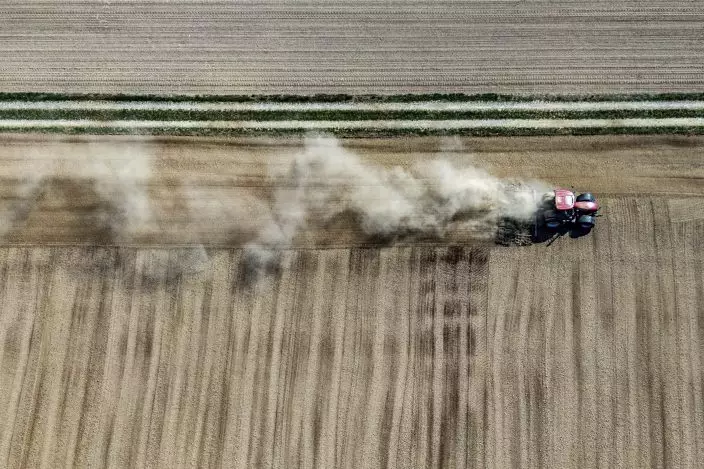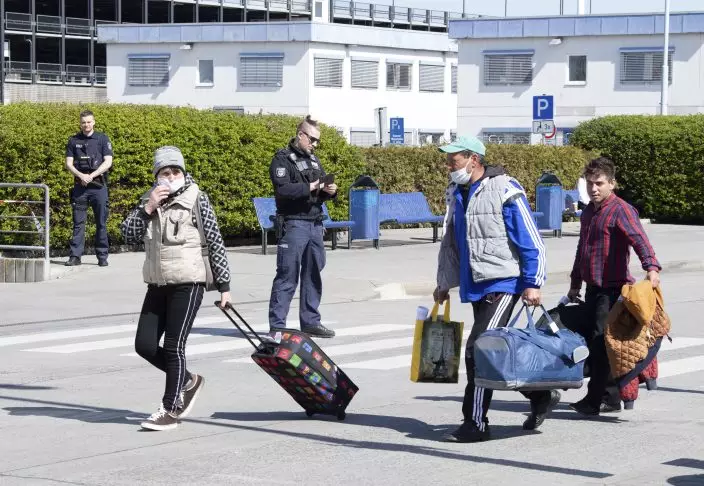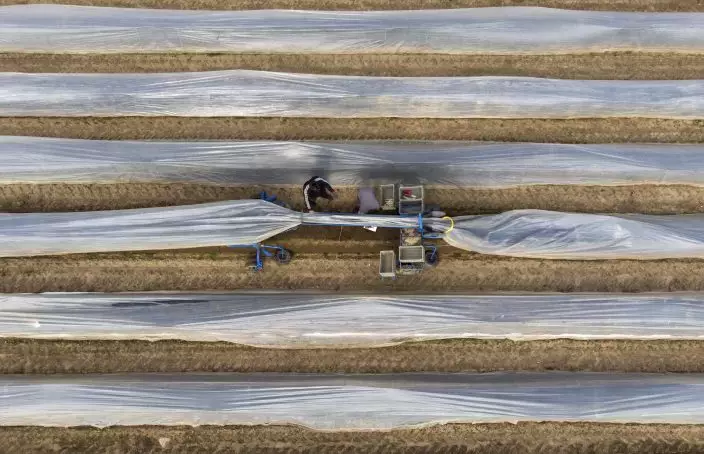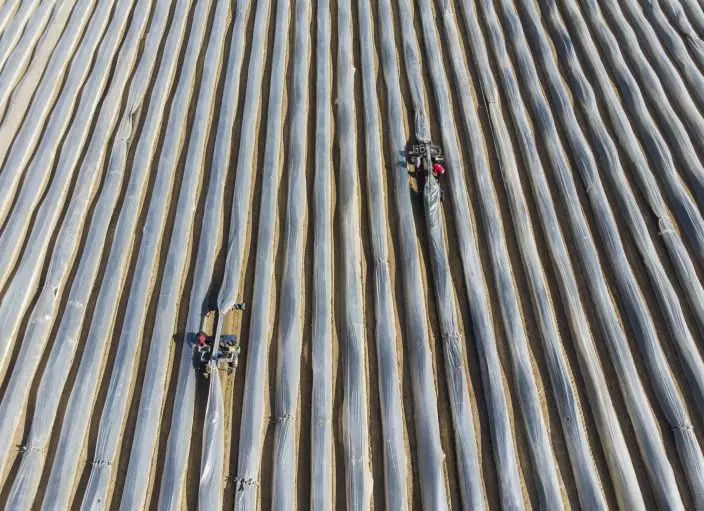Two planeloads of Eastern European farmhands arrived Thursday in Berlin and Duesseldorf amid strict precautions to protect the country from the new coronavirus, as an ambitious German program to import thousands of seasonal agricultural workers got underway.
Seasonal workers had been caught up in the country’s ban on travel after the outbreak of the coronavirus. That left a massive deficit in personnel available to pick asparagus, which has already sprouted, and plant other crops in German fields, where some 300,000 such workers were employed last year.
Most came from Eastern European countries such as Romania, Bulgaria, Ukraine, and Hungary, where wages are much lower than in Germany, which is Europe’s largest economy.

A farmer kicks up dust with his tractor while working on a field in Kleinpinning, Germany, Thursday, April 9, 2020. (Armin Weigeldpa via AP)
Under the new program, workers need to fly to the country in controlled groups — to prevent the possible infection of others en route — and are subject to medical checks upon arrival. They then must live and work separately from other farmhands for two weeks, and wear protective gear.
Announcing the program, Agriculture Minister Julia Kloecker said it was a “pragmatic and goal-oriented solution” that would allow up to 40,000 seasonal workers into the country in April, and another 40,000 in May. She said the hope was to find an additional 20,000 over the two months among Germany’s own unemployed, students or resident asylum seekers.
“This is important and good news for our farmers,” she said. “Because the harvest doesn’t wait and you can’t delay sowing the fields.”

People arriving from Craiova in Romania walk past the police officers with their luggage and masks to a charter bus waiting at the 'Schoenefeld Airport' in Berlin, Germany, Thursday, April, 2020. The first planes with harvest workers from Romania have been landing in the morning. (Soeren Stachedpa via AP)
Ahead of time, interested workers have to register online and have their information checked by federal police. Farmers needing help register online with Eurowings, the airline contracted to bring the workers in, saying when they’re needed and where.
So far, 9,900 people had registered for April and another 4,300 for May.
Flights are then organized to bring in groups, and the first group of workers, 530 people from Romania, arrived on Thursday in Duesseldorf and Berlin, Eurowings said. Further flights were already planned to Duesseldorf, Karlsruhe, Leipzig, Nuremberg and Frankfurt.

A man wearing a face masks as he sits in a bus after arriving from Craiova in Romania at the 'Schoenefeld Airport' in Berlin, Germany, Thursday, April, 2020. The first planes with harvest workers from Romania have been landing in the morning. (Soeren Stachedpa via AP)

Harvesters prick asparagus in a field with the help of an electric harvester in Buchholz, Germany, Thursday, April 9, 2020. Schleswig-Holstein's asparagus-eaters can look forward to the first shoots from local cultivation. (Daniel Bockwoldtdpa via AP)

Harvesters prick asparagus in a field with the help of an electric harvester in Buchholz, Germany, Thursday, April 9, 2020. Schleswig-Holstein's asparagus-eaters can look forward to the first shoots from local cultivation. (Daniel Bockwoldtdpa via AP)


